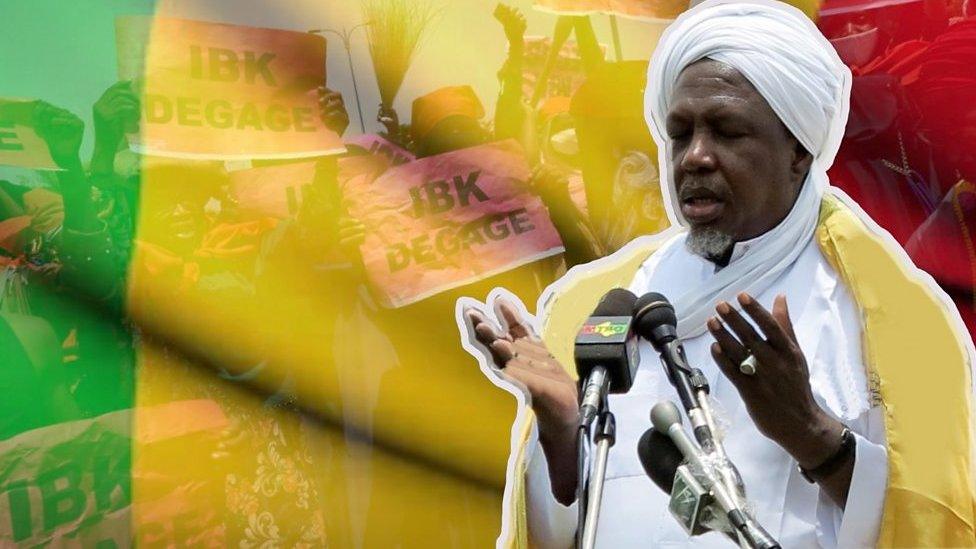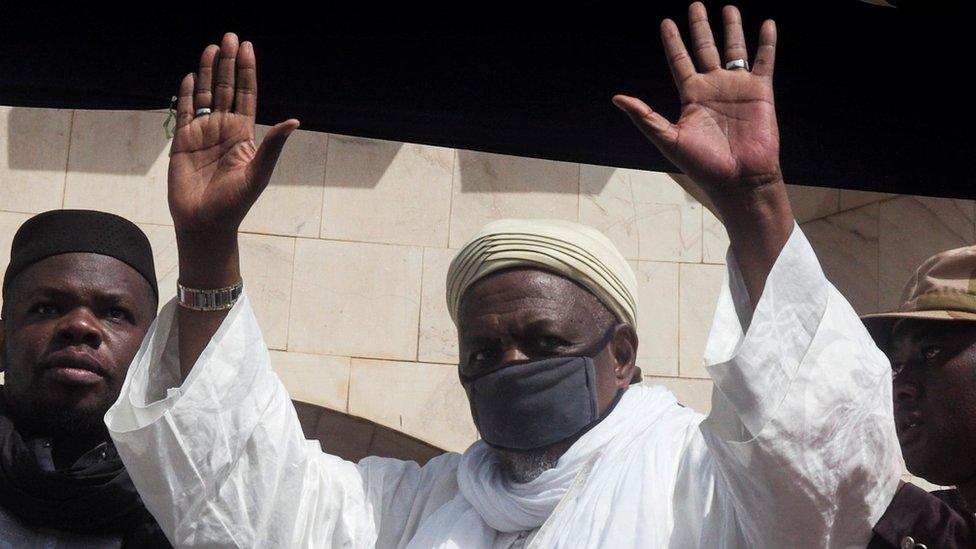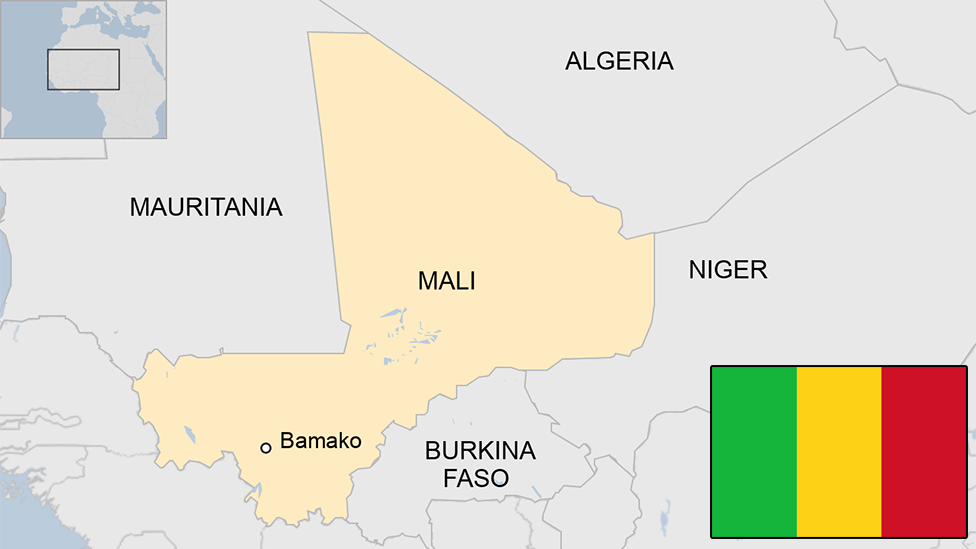Soldiers seize Mali President Ibrahim Boubacar Keïta
- Published
The mutinying soldiers were cheered by crowds as they reached the capital Bamako
Soldiers in Mali have detained the country's president, as well as the prime minister and other top officials in an apparent coup attempt.
President Ibrahim Boubacar Keïta and PM Boubou Cissé are being held at a military camp near the capital Bamako.
Earlier, the mutinying soldiers took control of the Kati camp.
There has been anger among troops about pay and over a continuing conflict with jihadists - as well as widespread discontent with President Keïta.
Tuesday's mutiny and arrests have sparked international condemnation.
The Economic Community of West African States (Ecowas), a regional bloc that has been mediating talks between President Keïta and opposition groups, has called for the immediate release of all officials.
In a statement, external, it also said its 15 member states had agreed to close their borders with Mali, suspend all financial flows to the country, and eject Mali from all of Ecowas' decision-making bodies.

What do we know about the mutiny?
It was led by Col Malick Diaw - deputy head of the Kati camp - and another commander, Gen Sadio Camara, BBC Afrique's Abdoul Ba in Bamako reports.
After taking over the camp, about 15km (nine miles) from Bamako, the mutineers marched on the capital, where they were cheered by crowds who had gathered to demand President Keïtas's resignation.
In the afternoon they stormed his residence and arrested the president and his prime minister - who were both there.
The president's son, the Speaker of the National Assembly, the foreign and finance ministers were reported to be among the other officials detained.
The number soldiers taking part in the mutiny is unclear - as are their demands. Some reports say it was fuelled by a dispute over army pay.
Kati camp was also the focus of a mutiny in 2012 by soldiers angry at the inability of the senior commanders to stop jihadists and Tuareg rebels taking control of northern Mali.
Footage from AFP news agency showed a building owned by the justice ministry in Bamako ablaze on Tuesday.
Allow X content?
This article contains content provided by X. We ask for your permission before anything is loaded, as they may be using cookies and other technologies. You may want to read X’s cookie policy, external and privacy policy, external before accepting. To view this content choose ‘accept and continue’.


Shades of 2012
Analysis by Will Ross, BBC World Service Africa editor
What began as a mutiny appears to have morphed into a coup. This will be welcomed by the huge number of protesters who have been out on the streets for months calling for President Keïta to step down.
Parallels will be drawn between these events and 2012 when the government's mishandling of a rebellion led to another coup.
Violent jihadists took advantage of that chaos to seize northern Mali. And they continue to cause havoc across the region.

Why is the president unpopular?
Ibrahim Boubacar Keïta won a second term in elections in 2018, but there is widespread anger over corruption, the mismanagement of the economy and the worsening security situation with jihadist and communal violence on the increase.
In recent months huge crowds led by populist imam Mahmoud Dicko have been calling on President Keïta to step down.
Much smaller crowds reportedly gathered in the capital on Tuesday in support of the soldiers.
What has the reaction been?
United Nations Secretary General António Guterres demanded the "unconditional release" of Mali's leaders and the "immediate restoration of constitutional order". The UN Security Council will hold an emergency meeting on Wednesday, following a request by France and Niger, a senior UN diplomat told the AFP news agency.
The chairman of the African Union Commission, Moussa Faki Mahamat, said he "emphatically condemns" the arrests of President Keïta and his prime minister.
The Economic Community of West African States (Ecowas) said: "This mutiny comes at a time when, for several months now, Ecowas has been taking initiatives and conducting mediation efforts with all the Malian parties."
Mahmoud Dicko has emerged as the leader of an opposition movement seeking the Malian president's departure
Mali is a key base for French troops fighting Islamist insurgents across the Sahel region, and the former colonial was quick to react to Tuesday's events.
The office of French President Emmanuel Macron "condemned the attempted mutiny under way" and his Foreign Minister Jean Yves Le Drian urged the soldiers to return to barracks.
- Published7 August 2020

- Published28 June 2020

- Published28 July 2023
